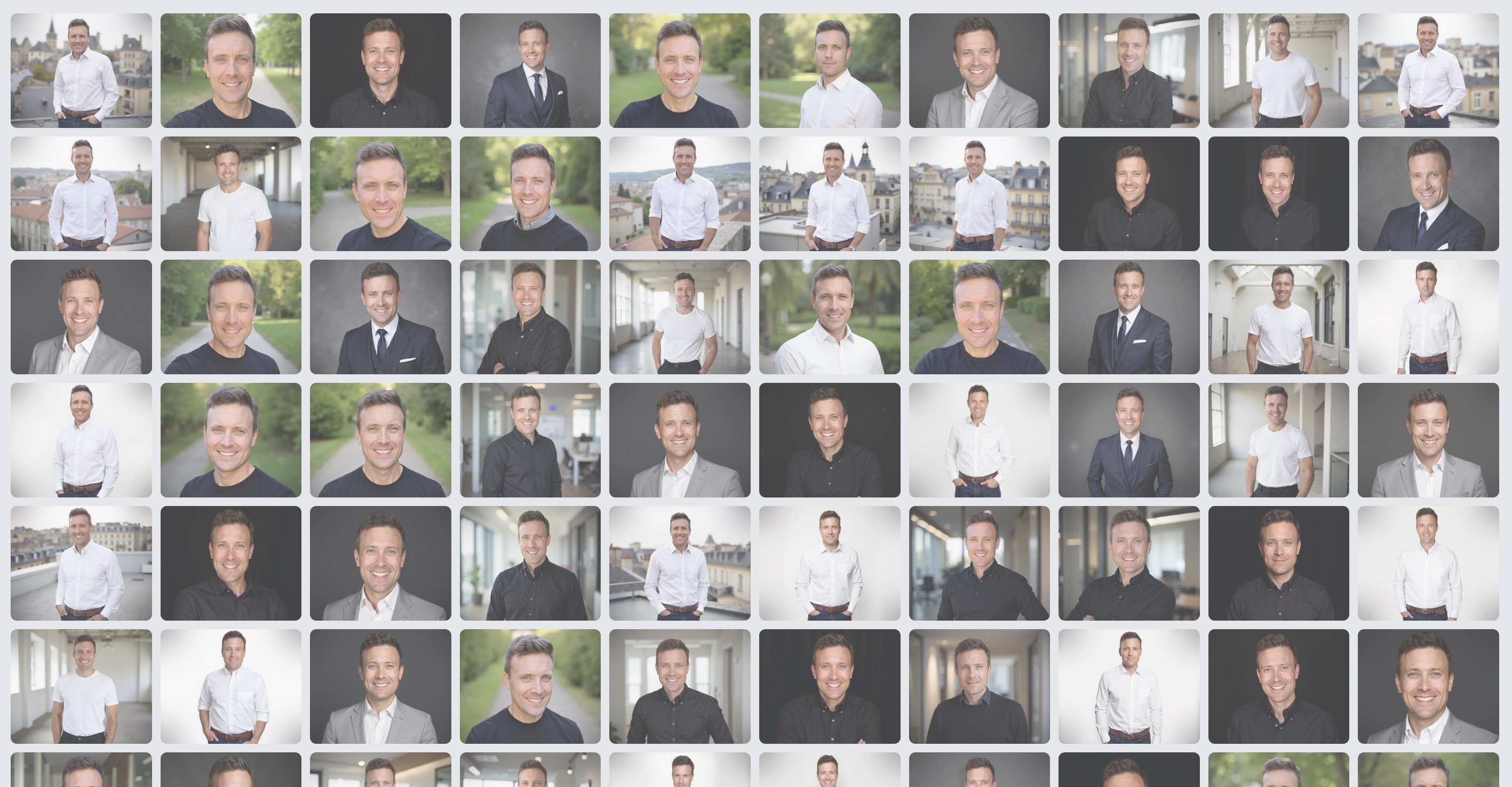Taylor Davidson · AI is a Photographer

Seventeen years ago I wrote a post called Everyone is a Photographer, responding to the seeming ubiquity of people taking and sharing photos using digital cameras and photo sharing sites and the impact it would have on the photography industry. Written just a couple months after the release of the first iPhone, the trends accelerated in the decades afterward, with visual images becoming a dominant form of communication as the total number of photos taken and shared exploded.
And yet, what we create ourselves appears ready to be swamped by what tools powered by artificial intelligence (AI) will generate. For example, the shift to generative AI embodies a different kind of creative process shift than we saw from film to digital image creation, obviously in terms of scale, but perhaps more importantly in terms of scope.
Last week I tested an AI tool to generate headshots using a set of 10-15 images of me, scrolled through the hundred generated photos, and showed my sons 20-30 of them, asking them if each photo looked like me. “No”, they responded instantly to each one, pointing out aspects that didn’t look like me. Some were comically off, a few were close but not quite right, and in the end, I chose one that I thought was close enough. I used it to replace my headshots [1] across a few websites, and among the comments, one friend commented that it was “definitely AI”.
I’m in a few heads about this.
He’s right, of course, that it’s AI. Is that good or bad? Is an AI-generated headshot that looks 95% like me better or worse than a headshot taken by a photographer that is highly edited in the post-production process and ends up looking 95% like me? Which one is more real? [2]
Obviously paying for an AI-generated image at 10x less the cost of hiring a professional photographer is worse for the photographer. Is it worth it to pay more for a professionally created image? What is the delta in terms of value and price? [3]
Is it right or wrong to use an AI-generated image as a depiction of yourself? We’ve lied about ourselves through photos for years, through filters and selective editing to create images for dating sites and social media profiles that aren’t really us. But that doesn’t justify the use of AI to do it, it just makes the process and end result easier, cheaper, and better.
Is AI the new filter or the new lie?
Will AI replace what I create, augment what I create, or expand the potential of what I try to create?
I wrote for years justifying the impact of technology innovation on photography (the business and the art), and artifical intelligence appears ready to be the next big disruptive force in the industry. My hope is that we find ways to use AI to make creative, unique, interesting art, and ways to use it to help us create, share, and use better imagery in our lives. I also hope it doesn’t destroy the lives and careers of professional artists, and doesn’t get misused to distort reality, undermine truth, and destroy society. I hope that the process of adopting AI doesn’t reallocate wealth and power from individual creators to the owners of LLMs, a perhaps inevitable result with closed source LLMs built off the backs of creatives, but one that I hope we decide to avoid.